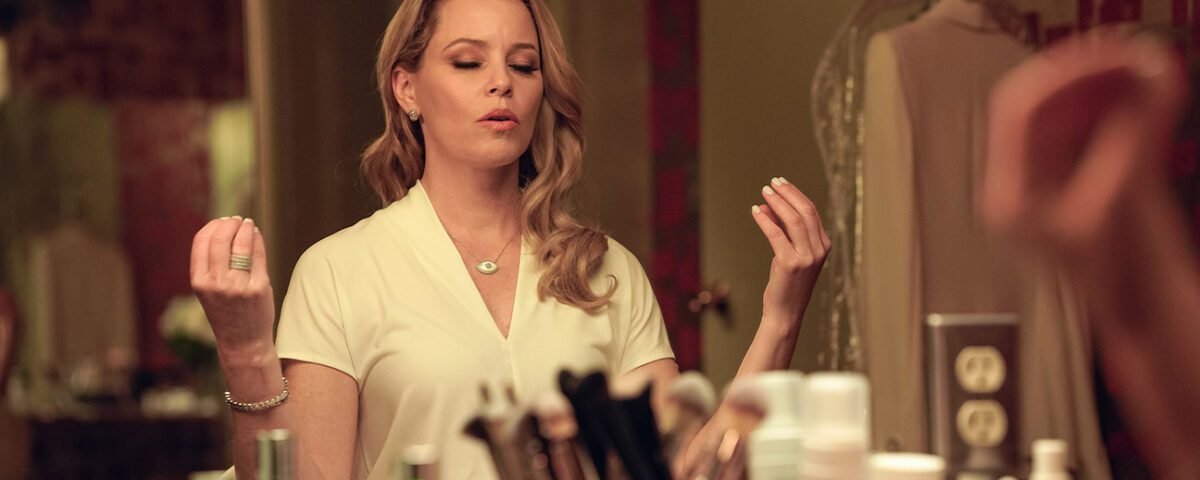


‘Jackpot!’ Review: John Cena and Awkwafina Make a Winning Team in Paul Feig’s Hilariously Violent Action-Comedy
August 16, 2024


Hollywood’s 20 Best Political Movies, Ranked
August 18, 2024A famous Los Angeles aesthetician becomes obsessed with her rival in Austin Peters’ debut narrative feature co-starring Lewis Pullman and Michaela Jaé (MJ) Rodriguez.
Skincare
Skin-deep.
At the beginning of Skincare, Austin Peters’ rather clever narrative feature debut, Hope Goldman reigns supreme. The Los Angeles-based aesthetician, played by Elizabeth Banks, is in the midst of launching her line of moisturizers, cleansers and serums made in Italy. Hope is an old school cosmetics-monger, who, after 20 years of exfoliating Hollywood’s most expensive faces, is ready to let regular people in on the secret. There’s just one problem: A new spa has opened across the street and its owner, Angel Vergara (Luis Gerardo Méndez), seems poised for a takeover, instigating a violent rivalry.
The film takes place in 2013, right before social media platforms like Instagram and TikTok stretched some users’ 15 minutes of fame to an endless number of hours. There was a desperate energy to that period, one captured well here through DP Christopher Ripley’s bleak and undersaturated aesthetic. A generous use of close-ups — especially of Hope’s eyes, blackened by dark eyeliner — creates a claustrophobic atmosphere, and the harps in composer Fatima Al Qadiri’s (Atlantics, Seeking Mavis Beacon) score textures the film with a haunting ghostliness. Eager to take advantage of the internet and drunk off the promises of hustle culture, people in this decade defined by aspiration collapsed the distance between private and public selves. Hope summarizes the sentiment of that time in her television interview: “I don’t see my life, who I am, as separate from my work,” she says. Angel’s arrival poses not only a threat to Hope’s business, but to her sense of self.
Peters handles the moving parts of Skincare efficiently. The film rarely stumbles over its propulsive rhythm. Characters are introduced and their backstories dispensed with deftness. As Hope’s fixation on Angel grows, it’s hard to shake the feeling of looming trouble. It’s a shame, then, when Skincare slackens, letting its sense of tautness slip. The focus on shepherding us from one scene to the next robs audiences of the opportunity to revel in the world of aestheticians — to understand the rules that govern this cutthroat business. Skincare shares an atmosphere and niche specificity with Medusa Deluxe, Thomas Hardiman’s thrilling mystery about the universe of competitive hairstyling. In that film, though, Hardiman plunged viewers into a fraught and coded ecosystem and, in addition to resolving a murder, investigated the unspoken rules of beauticians.
More curiosity here might have also yielded insight into other characters. Sure, it’s Hope’s world, but what about Angel, whose salon offers a coveted anti-aging technology? Or Hope’s assistant and publicity manager Marine (an underused Michaela Jaé Rodriguez), who at one point reminds Hope of how much her life depends on the success of this business? More attention to them could have opened up Skincare to dig into Hollywood’s obsession with youth (putting the film in conversation with Coralie Fargeat’s Cannes sensation The Substance) and the intergenerational tensions between old-school aestheticians and newer ones. The potential for exploring these peculiarities already existed in Peters’ story; it just would have required a bit of peeling.





